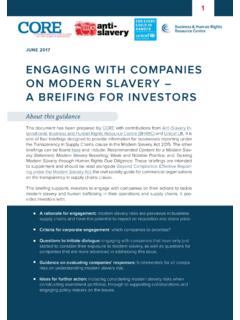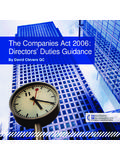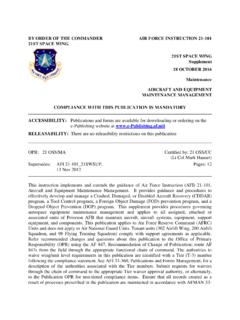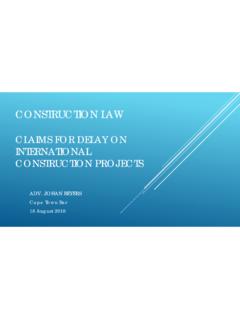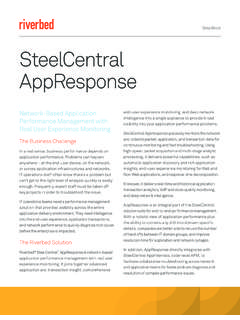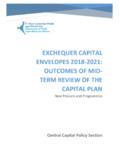Transcription of JUNE 2017 TACKLING MODERN SLAVERY …
1 TACKLING MODERN SLAVERY through human rights DUE DILIGENCEA bout this guidanceThis document has been prepared by CORE with contributions from Anti- SLAVERY Interna-tional, Business and human rights Resource Centre (BHRRC) and Unicef UK. It is one of four briefings designed to provide information for businesses reporting under the Transparency in Supply Chains clause in the MODERN SLAVERY Act 2015. The other briefings can be found here and include: Recommended Content for a MODERN SLAVERY Statement; MODERN SLAVERY Reporting: Weak and Notable Practice and Engaging with Companies on MODERN SLAVERY A Breifing for Investors.
2 These briefings are intended to supplement and should be read alongside Beyond Compli-ance: Effective Reporting under the MODERN SLAVERY Act, the civil society guide for commercial organisations on the transparency in supply chains clause. IntroductionThe UK MODERN SLAVERY Act (2015) requires commercial organisations operating in the UK with an annual turnover of more than 36m to produce a statement setting out the steps they have taken during the financial year to ensure that SLAVERY and human trafficking is not taking place in their business operations and supply chains. The law does not prescribe the exact content of a company s MODERN SLAVERY statements, however, it does provide a list of areas for organisations to consider including in their report.
3 This includes disclosure of any due diligence processes in relation to SLAVERY and human traf-ficking in its business operations and supply robust MODERN SLAVERY statement should be developed and presented in the context of a company s ongoing human rights due diligence process. Yet initial analyses of MODERN slav-ery statements indicate that social auditing remains the default approach to assessing and monitoring risks in the supply chain, despite its known limitations in detecting MODERN SLAVERY risks. 1 This briefing seeks to provide an introductory overview of human rights due diligence, to sup-port companies to identify and respond effectively to MODERN SLAVERY risks in their operations and supply 20171.
4 For example see Business and human rights Resource Centre and CORE Analysis of early statements March 2016 and Ergon Associates Reporting On MODERN SLAVERY : The First Hundred Statements - March 2016 What is human rights Due Diligence?Most companies will be familiar with due diligence as a risk-management procedure. The con-cept of human rights due diligence (HRDD) was introduced by the UN Guiding Principles on Business and human rights universally regarded as the global benchmark for responsible business conduct to describe an ongoing process that all companies should undertake in order to identify, prevent, mitigate and account for how they address their impacts on human rights .
5 Where companies undertake human rights due diligence, human rights impacts are more likely to be detected (including those linked to the activities of third parties), findings are more likely to be reported, human rights experts are more likely to be engaged and the effective-ness of actions taken in response to identified issues is more likely to be Guiding Principle on Business and human rights : The process [of human rights due diligence] should include assessing actual and potential human rights impacts, integrating and acting upon the findings, tracking responses, and communicating how impacts are addressed.
6 human rights due diligence: (a) Should cover adverse human rights impacts that the business enterprise may cause or contribute to through its own activities, or which may be directly linked to its operations, products or services by its business relationships;(b) Will vary in complexity with the size of the business enterprise, the risk of severe human rights impacts, and the nature and context of its operations; (c) Should be ongoing, recognising that the human rights risks may change over time as the business enterprise s operations and operating context evolve. (United Nations, 2011)How Does HRDD Differ from Audit?
7 Social audits have long been companies primary means of conducting checks on the treat-ment of workers, but they are largely ineffective in leading to sustained improvements in work-ing hours, overtime, wage levels and freedom of association, let alone in detecting MODERN SLAVERY . HRDD moves business firmly away from a reactive approach to human rights , towards a proactive approach where it is a company s responsibility to seek out and address actual or potential negative impacts that their activities may have on individuals and failure of social auditing to identify human rights abuses has been the subject of exhaus-tive research and is broadly accepted by social compliance The collapse of the Rana Plaza garment factory in Bangladesh in 2013 and the Guardian s expos of forced labour and trafficking in Thailand s shrimp industry in 2014 took place within certified.
8 Audited supply chains. 3 In 2016 in the UK, Mohammed Rafiq became the first company owner to be convicted of human trafficking. His firm Kozee Sleep and its subsidiary Layzee Sleep supplied British retailers including Next Plc, the John Lewis Partnership and Dunelm Mill, all three of which, despite carrying out regular ethical audits, failed to spot any See for example Richard M. Locke, The Promise and Limits of Private Power: Promoting Labor Standards in a Global Economy (New York: Cambridge University Press, 2013) is based on years of empirical research across industry sectors and countries, including direct access to audit data provided by several leading Ethical Audits and the Supply Chains of Global Corporations, The University of Sheffield, January 2016 AUDITS uppliers don t disclose accurate information, under-mining the value andvalidity of data focus on supplier compliance with company poli-cies and national laws (mainly labour rights ) may result in some adverse human rights impacts being missed.
9 This is especially relevant where company operations and supply chains extend to countries with weak gov-ernance, where national laws fall short of international standards on human and labour often lack capacity to implement corrective action plans in a sustainable causes are often overlooked and suppliers are left to deal with systemic challenges that are beyond their direct links between companies operating practices (such as procurement and recruitment) and working conditions in the supply chain are not visits are often limited to top tier suppliers, de-spite a higher likelihood of risks being present in lower tiers where there is little visibility and where the most vulnerable and socially excluded people on pass/fail criteria, and rarely identify opportuni-ties for companies to support human rights , for example through investment in vocational training programmes for vulnerable and marginalised young people.
10 Issues are often not identified until they have already interviews are often limited to their workplace rights DUE DILIGENCED irect engagement with stakeholders on the ground, including: people who are or may be affected by busi-ness activities; trade unions; and NGO representatives. This provides companies with a 360-degree overview of human rights rights impact assessments are performed against a baseline of international human rights stan-dards. This gives companies a more comprehensive understanding of areas for improvement. Engagement with external experts results in a deeper level of con-text-specific risk analysis than companies can typically produce on their own or via an auditing rights due diligence requires ongoing engage-ment, negotiation and collaboration.


